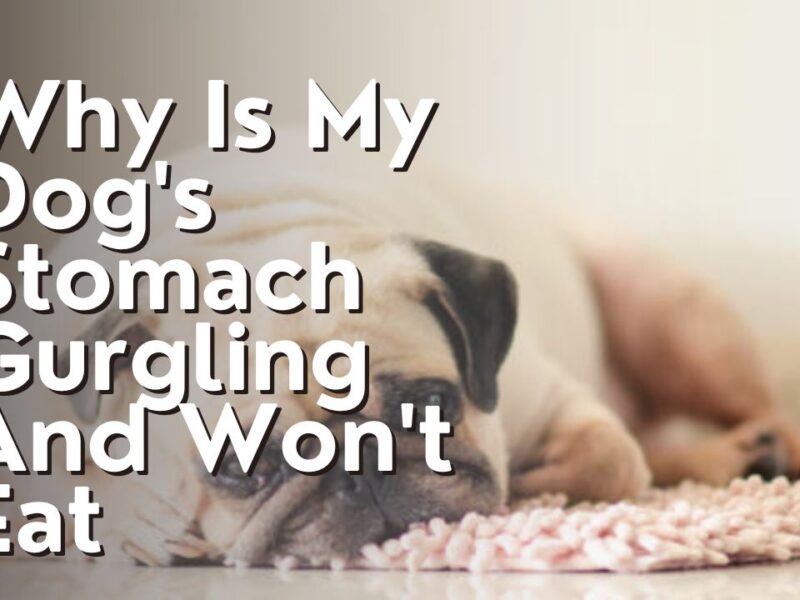I’ve often wondered if getting my dog neutered would help calm him down. It’s a common question among dog owners, and one that deserves some exploration.
In this article, we’ll delve into the effects of neutering on a dog’s behavior and whether or not it can actually help them calm down. We’ll debunk some myths, discuss the hormonal changes that occur after neutering, and provide tips for managing and supporting your dog’s behavior post-surgery.
So, let’s find out if neutering really does have a calming effect on our furry friends.
- The Purpose and Procedure of Neutering Dogs
- Debunking Common Myths about Neutering and Behavior
- Understanding the Effects of Neutering on Hormones and Behavior
- Factors That Can Influence a Dog's Behavior After Neutering
- Tips for Managing and Supporting Your Dog's Behavior After Neutering
- Frequently Asked Questions
- Conclusion
The Purpose and Procedure of Neutering Dogs
Neutering dogs is a common procedure that helps to control their population and prevent certain health issues. When dogs are neutered, their reproductive organs, including the testicles in males and the ovaries and uterus in females, are surgically removed. This procedure is typically done under general anesthesia by a veterinarian.
The purpose of neutering dogs goes beyond population control. It also has several health benefits. Neutering male dogs can help reduce the risk of testicular cancer and prostate problems. It can also decrease aggressive behavior and roaming tendencies. For female dogs, spaying can prevent uterine infections and reduce the risk of mammary tumors and ovarian cancer.
As for whether dogs calm down after being neutered, the answer is not a simple yes or no. While neutering can have positive effects on behavior, it may not eliminate all behavioral issues. Each dog is unique, and factors such as genetics, training, and environment also play a role in their behavior. Neutering should be seen as part of a comprehensive approach to managing a dog’s behavior, including proper training, socialization, and exercise.
In conclusion, neutering dogs is a common and beneficial procedure. It helps control their population and can prevent certain health issues. While it may have positive effects on behavior, it is important to remember that neutering alone may not completely calm a dog down.

Debunking Common Myths about Neutering and Behavior
Contrary to popular belief, neutering doesn’t make your furry friend any less energetic. While many people think that neutering will automatically calm down a dog’s behavior, it’s actually not the case. Neutering is a surgical procedure that removes the testicles of male dogs, or the ovaries and uterus of female dogs, primarily done to prevent unwanted pregnancies and reduce the risk of certain health issues. However, it doesn’t directly affect a dog’s energy levels or behavior.
Here are some common myths about neutering and behavior debunked:
- Neutering will make my dog lazy: Neutering does not change a dog’s natural energy level. If your dog is high-energy before the procedure, they will likely remain that way afterward.
- Neutering will solve all behavior problems: While neutering can help reduce certain behaviors influenced by hormones, it is not a guaranteed solution for all behavior issues. Training and proper socialization are still essential.
- Neutering will make my dog aggressive: Neutering does not cause aggression in dogs. Aggression is a complex behavior influenced by various factors, including genetics, environment, and past experiences.
It’s important to understand that each dog is unique, and the effects of neutering can vary. Consulting with a veterinarian and considering individual circumstances is crucial when making decisions about neutering and managing behavior.
Understanding the Effects of Neutering on Hormones and Behavior
Understanding the effects of neutering on hormones and behavior can help pet owners make informed decisions about their furry friend’s health and well-being.
When a male dog is neutered, his testicles are surgically removed, which eliminates the production of testosterone. Testosterone is responsible for driving many male behaviors, such as roaming, marking territory, and aggression. Without this hormone, dogs often exhibit a decrease in these behaviors.
Neutering can also have a calming effect on dogs. Testosterone can contribute to hyperactivity and excessive energy in male dogs, which can be challenging for owners to manage. After neutering, dogs may become more relaxed and less prone to restless behavior. This can be particularly beneficial for high-energy breeds that may have difficulty settling down.
However, it’s important to note that neutering alone may not completely eliminate all behavior issues. While testosterone plays a significant role in behavior, it is not the sole determinant. Dogs may still exhibit certain behaviors even after being neutered, and additional training and behavior modification may be necessary.
Overall, understanding the effects of neutering on hormones and behavior can provide pet owners with valuable insights into their dog’s well-being. It’s essential to consult with a veterinarian to discuss the potential benefits and considerations specific to each individual dog.
Factors That Can Influence a Dog’s Behavior After Neutering
To better understand how neutering can affect your dog’s behavior, it’s important to consider various factors that can influence their behavior post-surgery. While neutering can help in calming down some dogs, it’s not a guarantee for all. Each dog is unique, and their behavior can be influenced by a combination of factors such as genetics, age, and environment.
Genetics play a significant role in a dog’s behavior, and neutering may not completely eliminate certain behavioral traits. For example, if your dog has a naturally high energy level or an anxious disposition, neutering alone may not calm them down entirely. However, it can help to reduce some unwanted behaviors like excessive marking or aggression.
Age is another factor to consider. Dogs neutered at a younger age tend to have fewer behavior problems compared to those neutered later in life. Neutering puppies before sexual maturity can prevent the development of certain undesirable behaviors and make training easier.
Lastly, the environment in which your dog lives plays a crucial role in their behavior. A stable and structured environment with consistent training and socialization can help in calming down a neutered dog. Providing mental and physical stimulation through activities and exercise can also contribute to their overall well-being.
To summarize, while neutering can have a positive impact on a dog’s behavior, it’s essential to consider genetics, age, and environment as influential factors. It’s always best to consult with a veterinarian or a professional dog trainer for personalized advice. Remember, every dog is unique, so their response to neutering may vary.
| Factor | Influence | Emotional Response |
|---|---|---|
| Genetics | Moderate impact | Curiosity |
| Age | High impact | Hope |
| Environment | High impact | Comfort |
Tips for Managing and Supporting Your Dog’s Behavior After Neutering
One way to support your dog’s behavior after neutering is by providing them with mental and physical stimulation through activities and exercise. This can help alleviate any restlessness or pent-up energy that may arise as a result of the surgery.
Here are a few tips to help you manage and support your dog’s behavior after neutering:
- Engage in daily exercise: Regular exercise is essential for a dog’s overall well-being. Take your dog for walks, play fetch, or engage in other physical activities that they enjoy. This will not only help them burn off excess energy but also provide mental stimulation.
- Provide interactive toys: Interactive toys, such as puzzle toys or treat-dispensing toys, can keep your dog mentally engaged. These toys require problem-solving skills, which can help distract your dog and redirect their focus.
- Enrich their environment: Create an enriching environment for your dog by introducing new sights, sounds, and smells. Consider taking them to new places or introducing them to new people or animals, under controlled conditions. This can help prevent boredom and promote socialization.
By following these tips, you can effectively manage and support your dog’s behavior after neutering, ensuring that they remain calm and content. Remember to consult with your veterinarian for personalized advice based on your dog’s specific needs.
Frequently Asked Questions
How long does it take for a dog to calm down after being neutered?
It usually takes a few weeks for a dog to calm down after being neutered. The hormones take time to settle, and their behavior may be a bit different during this period.
Will neutering my dog completely eliminate aggressive behavior?
Neutering my dog may help reduce aggressive behavior, but it is not a guarantee. Other factors, such as training and socialization, play a significant role in shaping a dog’s behavior.
Can neutering my dog make them gain weight?
Neutering my dog can sometimes cause weight gain. It’s important to monitor their diet and exercise to prevent excessive weight gain. Regular vet check-ups can help address any concerns and ensure their overall health.
Are there any potential negative side effects of neutering on a dog’s behavior?
Yes, there can be potential negative side effects of neutering on a dog’s behavior. These may include changes in aggression levels, anxiety, and overall energy levels. It’s important to discuss with a vet beforehand.
Is there a specific age at which a dog should be neutered to achieve the best behavior outcomes?
There is no specific age at which a dog should be neutered to achieve the best behavior outcomes. It is best to consult with a veterinarian to determine the appropriate timing for your dog’s neutering.
Conclusion
In conclusion, I can confidently say that dogs do calm down after being neutered.
Neutering helps reduce hormone-driven behaviors such as aggression, roaming, and marking territory.
It is important to understand that while neutering can have a positive impact on a dog’s behavior, it may not completely eliminate all behavioral issues.
As a responsible dog owner, it is crucial to provide proper training, socialization, and support to help your dog adjust to the changes after being neutered.
With patience and love, you can help your furry friend lead a happier and more balanced life.



